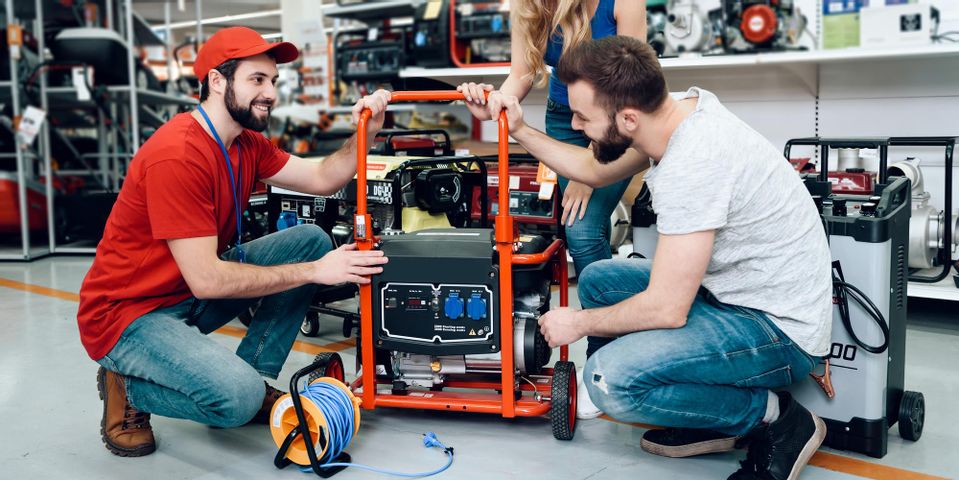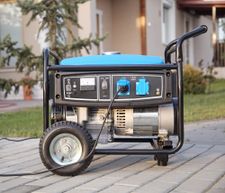
Have you had a power outage and wished you could charge your cellphone? When you buy a piece of power equipment like a generator, you can run most of your devices and household appliances. If you aren’t familiar with these devices, this article explains how they work and what factors you should consider to select the right one.
How Does a Generator Work?
 A generator is a piece of power equipment that converts mechanical and chemical energy into electricity for your home or appliances. Most residential generators rely on sources like gas, diesel, or propane.
A generator is a piece of power equipment that converts mechanical and chemical energy into electricity for your home or appliances. Most residential generators rely on sources like gas, diesel, or propane.
Several components make up a this piece of power equipment. Most generators contain an engine, alternator, and fuel system. The machines also have voltage regulators, exhaust systems, battery chargers, and control panels.
The engine supplies the energy the alternator needs to convert the power into electricity. The fuel system provides the fuel needed for the conversion, while the voltage regulator and exhaust system help to control the energy converted. A battery charger allows you to start the generator, while the control panel is used to operate the power equipment.
What Factors Should You Consider When You Purchase One?
Residential generators can range in capacity from 5-50 kW (kilowatts). If you don’t lose power often, a midsize generator may be right for your home. Typically, you’ll see gas generators in homes, but you can opt for propane or diesel if those are more available power sources around your residence.
If you want a new generator or components, consult the professionals at Krogen's Do It Best in Boscobel, WI. For over eight generations, this store has offered more than 65,000 name brand products like Westinghouse® and Generac® portable generators. To learn more about Krogen's Do It Best, visit them online, or call (608) 375-4656 to order one of their generators or accessories.
About the Business
Have a question? Ask the experts!
Send your question

